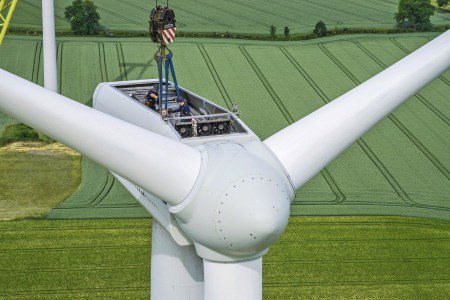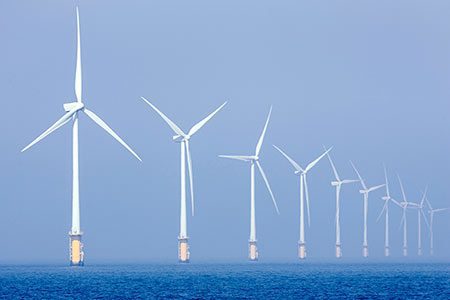wind power data protection ?

From
Stefan Krempl
EU committees are working on a toolbox to protect European wind turbine manufacturers from Chinese competitors. The focus is to be on cyber security. The EU Commission laid the foundations for this with the “Immediate measures to support the European wind power industry” introduced in October, reports the Euractiv portal. This package enables EU states to potentially keep foreign companies out on the basis of “objective and non-discriminatory” criteria that must be met in advance. These include cybersecurity, data residency, sustainability and the practicability of projects. Wind turbines that do not meet certain IT security requirements, which are yet to be defined in more detail, could be excluded from the regular public auctions for the allocation of subsidies.
According to the report, the European Huawei standard should serve as a model. With a 5G toolbox, the Commission recommended that member states keep risky providers out of core areas of the networks back in 2020, particularly with regard to the Chinese equipment supplier. Relevant decisions may only be made on the basis of security considerations. In 2023, the Brussels government institution called for an even clearer ban on such suppliers in the 5G expansion. In Germany, the Bundestag has included a Huawei clause in the IT Security Act 2.0. It sets a comparatively high hurdle for the exclusion of individual suppliers. The government can prohibit the use of “critical components” in the event of “probable impairments to public safety and order”. The Federal Ministry of the Interior in particular is pushing to make use of this option with Huawei and ZTE.
European turbine manufacturers are hoping for a similar approach in their territory. EU regulations should ensure that “safe equipment” is installed in Europe, emphasized Juan Virgilio Marquez from the Spanish wind energy association AEE at a recent industry meeting in Bilbao, according to Euractiv. One of the arguments put forward by the sector is that sensitive information from wind turbine sensors could be leaked via a satellite connection and transmitted to manufacturing countries such as China. This involves terabytes of data every day. However, not everyone in the industry sees this as a major threat. For example, there is also talk that beyond regular operating figures such as wind speeds, power output and blade angles, nothing sensitive can be gained from access to a turbine.
China could press a “red button”, shut down thousands of turbines and send the electricity markets into a tailspin, the sector continues to campaign for stricter rules. In fact, wind turbines can usually be controlled remotely. In a weaker grid, the failure of several large wind turbines could lead to a problem, explained Rafael Mateo, head of the Spanish provider Acciona Energia. Normally, however, an attacker would have to control all wind farms in a particular region in order to seriously jeopardize the grid. In concrete terms, the crackdown could begin as soon as the Net Zero Industry Act (NZIA) comes into force: from 2026, public tenders for the promotion of renewable energies will have to include cyber security requirements. However, projects without public funding will generally be excluded.




No Comments